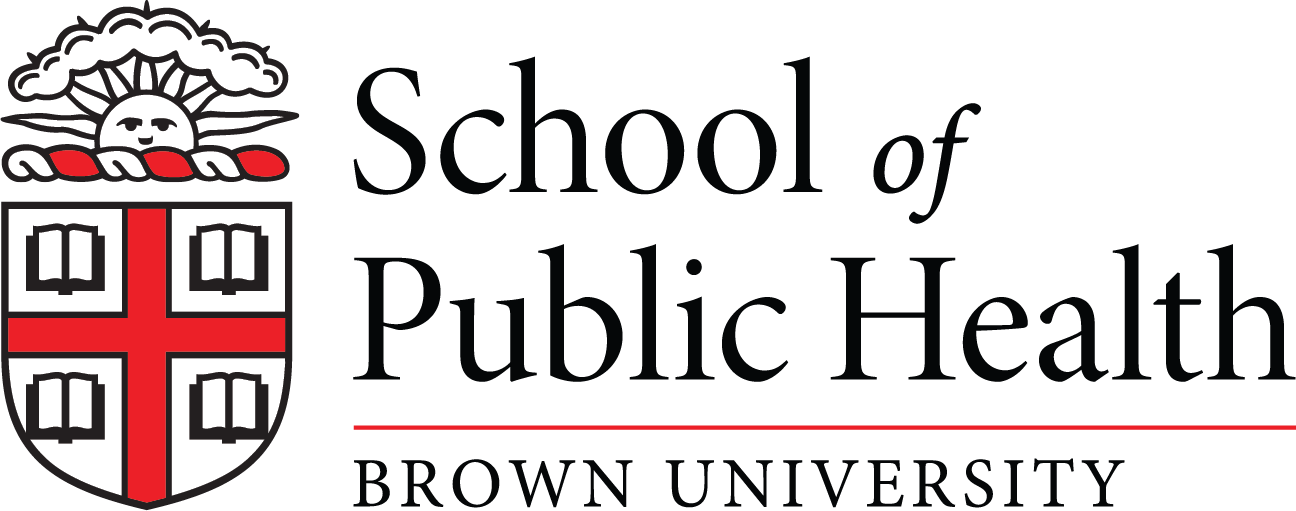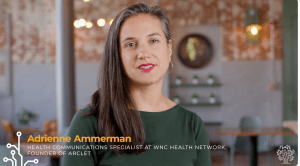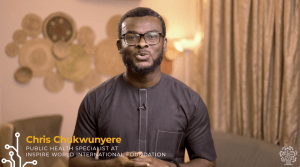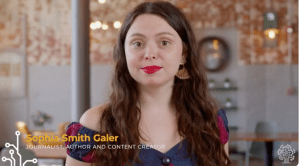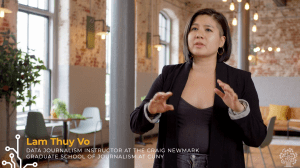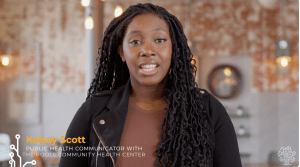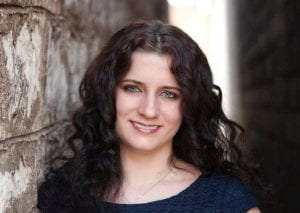Global Fellows Share Community-Designed Strategies in New Video Series
PROVIDENCE, RI – The first class of Information Futures Lab (IFL) Fellows at Brown University’s School of Public Health has debuted eight community-driven, innovative solutions to improve information ecosystems. The IFL, launched in June 2022, works to meet the urgent need to address the information crisis threatening to undo major achievements in public health and erode the foundations of democracies.
From the mountains of western North Carolina, to the streets of Chiang Mai, Thailand, these projects are locally-developed and center the cultural realities of the communities they serve. Fellows are making an impact, with positive outcomes from projects so far including more than 40 communities across Nigeria connected with culturally appropriate health information, increased social media literacy among aspiring school-age content creators in Great Britain, and support for the Black community in East Oakland, Calif., to better manage diabetes.
“The IFL’s inaugural cohort of fellows represents a diverse group of leaders in fields such as public health, journalism, and technology. The interdisciplinary nature of the group strengthens our collaboration, yet all share a passion for information equity,” said Claire Wardle and Stefanie Friedhoff, co-directors of the IFL and Professors of the Practice at the Brown School of Public Health.
“Over the past year, our fellows have tapped into their lived and professional experiences to pilot and advance scalable, evidence-based approaches to addressing a global information crisis that harms people, public health, and democracies.”
Fellows worked with partner organizations and community leaders to design and deploy their solutions.
“The pandemic changed how we think about our work. We didn’t use to have communications staff at our health clinic. We didn’t need to. Then it became impossible to stay on top of the chaotic narratives, and we realized we needed to find better ways to capture the many questions people have and creatively share answers with them – and not just on COVID,” said Dr. Noha Aboelata, M.D., Chief Executive Officer at the Roots Community Health Center in Oakland. “Being able to partner with the Information Futures Lab has been invaluable.”
The IFL Fellowship in Action
The fellows joined the IFL in January, leveraging the lab’s network of research and resources to scale and deploy projects. Many of the initiatives are already being implemented in the communities for which they were designed.
While these projects are designed with the information needs of specific communities at their core, the ideas behind them can be scaled and replicated with other communities’ information ecosystems in mind. IFL Fellows share the inspiration behind their projects in a series of videos posted today on the Information Futures Lab website.
Adrienne Ammerman is a communications specialist at WNC Health Network based in Asheville, N.C. During her fellowship, Adrienne designed the pilot approach for Arclet, a centralized, digital platform designed to help public health professionals find, test, customize, and share culturally-competent health information. “As communicators, our job is to make sure that everyone has what they need to keep themselves and their communities safe during a health crisis,” said Ammerman.
Chris Chukwunyere is a public health specialist at Inspire World International Foundation in Abuja, Nigeria. He identified and trained 40 young Nigerians to become credible health information messengers for rural and semi-urban communities in the country, and developed with their input 30 locally driven and culturally appropriate solutions for filling health information gaps. “I am grateful to the Information Futures Lab at the Brown University School of Public Health for this opportunity and the support which allowed me to kickstart this project,” said Chukwunyere. “If properly channeled, the energy, creativity, and vigor of young people can be harnessed to create incredible social impact.”
London-based former BBC and VICE senior news reporter and digital content expert Sophia Smith Galer developed the Creator Literacy Initiative, an online media literacy curriculum that empowers aspiring content creators to promote positive social change online. “We can create resources that set us up for the good and the bad of online information—protection and preparation,” said Smith Galer.
Kelly Perry, a research associate at Johns Hopkins Bloomberg School of Public Health and from Chiang Mai, Thailand, created The Clean Lantern as her fellowship project. This initiative collects stories from people most impacted by poor air quality in the country as a means of driving collective activism for a future with cleaner air. “I want to work with people to hear what their dreams are and to work with them to make those dreams a reality,” said Perry.
Lam Thuy Vo, a data journalism instructor at the Craig Newmark Graduate School of Journalism at the City University of New York, studied how a Vietnamese immigrant community received and interacted with news, health information, and local updates, allowing her to conceptualize information solutions for similar communities across the country. “This project was a catalyst for me; I now feel empowered to help. I can research ways that could help this community get the information they need,” said Thuy Vo.
IFL partnered with the Roots Community Health Center, represented in the fellowship by Kelsey Scott of Oakland, Calif., to survey members of the Black community of East Oakland living with diabetes or pre-diabetes. She then developed culturally appropriate resources titled H.I.P H.O.P. – Health In Perspective Helps Our People – to help community members better care for themselves and manage their condition. “By embracing the diverse cultural melodies within Latino, Asian, Native American, and other communities of culture, we are able to orchestrate a movement to address health disparities and inequities,” said Scott.
Elisabeth Wilhelm of Atlanta, Ga., is a senior social and behavior change technical advisor, contracted at USAID on the Covid-19 Team in the Bureau for Global Health. As an IFL fellow, she worked with a community of frontline health workers and developed a storytelling-based, participatory research approach to analyzing the experiences of other health workers who addressed health misinformation during the Covid-19 pandemic. “It’s important to understand how the complex and globally networked information environment has affected people and health systems so that we can better prepare for the next pandemic,” said Wilhelm. “We can do this through stories.”
Mark Scott, POLITICO’s chief technology correspondent in London, documented with his project how journalists and public health professionals track information trends online, and researched best practices for social media transparency and accountability. “If we want social media to be more accountable, we first need to create the right tools to know what’s going on,” said Scott.
The IFL will continue to support fellows’ efforts to implement and scale their solutions by promoting projects and forging connections throughout the greater Brown University network. Information on how to apply for a 2024-25 fellowship will be posted on the IFL website in spring 2024.
About the IFL
The IFL improves information ecosystems and empowers communities with the resources, skills, and knowledge to effectively access, create, and understand information that is crucial to their wellbeing. The IFL researches the challenges created by the information crisis through partnerships with communities, leaders, and organizations, and combines research and practice to identify and accelerate actionable, community-driven solutions.
Media contact:
Shaydanay Urbani
